Defence Minister Rajnath Singh on Monday said the gap between internal and external security is reducing sharply in the last two decades.
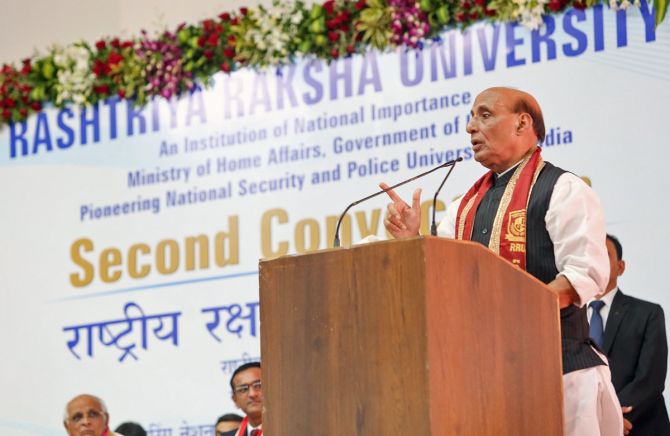
He also said the independent media, judiciary, NGOs and dynamic democracy can be misused to destroy the security of a nation.
Addressing the second convocation of the Rashtriya Raksha University at Lavad village in Gujarat's Gandhinagar district, Singh said, "The lines between the internal and external security almost disappear in a hybrid war."
He stressed the need for state agencies to work in an integrated manner as security challenges like terrorism, cyber warfare, human trafficking, money laundering, drug abuse etc are internally connected though they appear separate.
With the changing times, there has been a tremendous change in security dimensions, he said.
"We generally see security from two aspects -- internal and external. But in the last two decades, it has been seen that the gap between internal and external security is reducing," Singh said.
The defence minister said social media, NGOs, the judiciary and the democracy of a country can be misused by forces working to destroy its security.
"An independent social media can be used to carry out systematic propaganda. Freedom of social media is not bad, media should be free, but if media is free it can be misused...Attempts are made to establish and propagate dangerous and controversial things in the name of freedom of expression," he said.
"If NGOs have freedom, efforts are made to use NGOs in such a way that the entire system of the country is paralysed. If the judiciary has freedom, efforts are made to use it to stop or slow down the works of development using the legal system. If a country has a dynamic democracy, then an effort is made to infiltrate political parties to attack its unity and security," Singh said.
He said that these are not mere imaginations, but words of strategists detailed in security documents of some countries.
Singh gave the example of some media reports which said that 50 per cent of tweets in connection with the case of violence at Koregaon-Bhima (in Maharashtra's Pune district in 2018) originated from Pakistan.
It becomes difficult to determine when the definitions of terrorism and insurgency/extremism overlap and their objectives become one, he said.
"Terrorism is coming up with massive challenges in every dimension of the system and not just at the level of bombs and guns. I would like to discuss hybrid war here. In a hybrid war, the line between internal and external security almost vanishes," he said while addressing the graduating students of the RRU.
"Information warfare" is about the possibility of fake news and hate content being spread in society through Facebook and Whatsapp, Singh said.
"Outwardly it appears like some serious discussions are being held in a seminar, but it is not the truth. Internally, there is a possibility of spreading deceptive and wrong facts that can fill any society with hate and violence," the defence minister said.
He said anti-social elements are "so fast and advanced" that even police agencies are deceived, and they cannot make out what is going in front of them.
"We have to remain alert of new security challenges...As new technologies develop, so are their dangers. We must understand this truth," he said.
Singh said the example of Russia banning Meta, the parent company of Facebook, by calling it a "terrorist organisation" shows how the meaning of war has changed.
He also stressed the importance of "coexistence" and said India "neither annexed nor subjugated" but motivated other countries.
Even if India becomes a developed country and highly knowledgeable, it cannot be secured until we emerge from the "slave mentality," the defence minister said.
"We should rid ourselves of slave mentality. For that, we need to know the facts of the history of our security," he said and cited examples of how India strongly resisted and defeated invaders in ancient times.
Singh said India used to be a prosperous and secure country in ancient times.
"We are told that if we were so prosperous and secure then how we were subjugated by external powers? We were among the most ancient civilisations, but I can say with confidence that we are the only living civilisation....It can only be possible when our raksha kavach (security cover) is very strong," he added.
Singh said security is the first among the important works of a State.
"Security means the security of human freedom, human rights and human dignity. It will not be wrong to say that security is the first step towards freedom, human rights and economic well-being," he said.
Singh exuded confidence that India will become the fourth largest economy in the world by the end of this decade, and will reach the top position by 2047 when the country celebrates the centenary of its Independence.
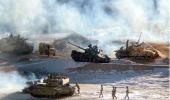








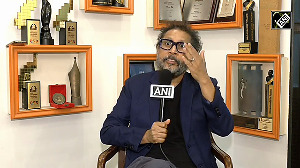
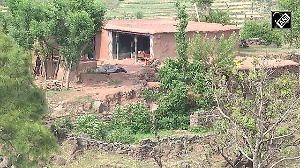
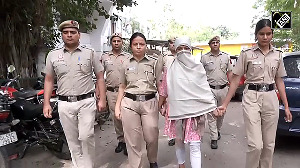
 © 2025
© 2025